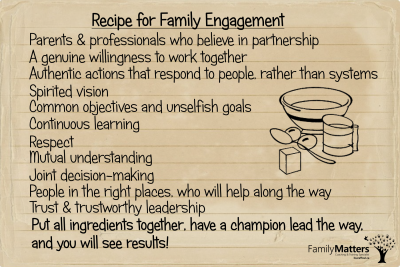 Born with respiratory distress; having a difficult time to settle or sleep; spending the first five months of his life in hospital, life with Eric was certainly a challenge. In home support was offered to us however, we believed that our child was our responsibility and that no matter what, “we could do it.”
Born with respiratory distress; having a difficult time to settle or sleep; spending the first five months of his life in hospital, life with Eric was certainly a challenge. In home support was offered to us however, we believed that our child was our responsibility and that no matter what, “we could do it.”
Some people might call it “denial”, whereas I like to say, it was “hope”. We were told by one of the country’s best physicians that, “he had a rough start” and that things would get better.
Well, things didn’t get better. After 6 months of sleepless nights, constant crying, and two choking scares, continuous worry and non-stop stress, we finally realized that we couldn’t do it alone.
I contacted the local infant and family program and scheduled the first home visit. At first it was weird having someone come into our home, however just having someone else to talk to about our situation, provided some relief. Along with this service, there was an organization that delivered physiotherapy, occupational therapy and a program for communication. A different agency offered respite. The local office for the provincial government provided funding for in-home support and financial assistance for children with severe disabilities. There were numerous appointments each week, including frequent visits to the doctor, hearing tests, special equipment fittings and so much more.
We certainly appreciated all of the support that we could get. There were so many good people in our lives who were trying to support us through a very difficult situation.
While all of the services were helpful, it didn’t take long to recognize inconsistencies in how the support was delivered. Some of the people in our lives were empathetic and caring, while others were emotionless and negative. There were professionals who were very knowledgeable about children with complex disabilities, and others seemed to have very little understanding. There were the people who were willing to advocate for more support and others operated as “gate keepers” of funding and didn’t seem to care about how our circumstances were affecting our family life.
Once Eric was in elementary school, the same inconsistencies applied to principals, teachers, and educational assistants. Some went above and beyond, while others worked to fulfill the minimum requirements of their job.
I realized that there were two sides to every story. I wanted to ensure that my side was understood and I wanted to understand the perspective of professionals. I asked a lot of questions, and I shared a lot of information. No matter how diligent the professional, it seemed like the service “system” was the priority, rather than the children and families.
It didn’t take long for me to become involved as a parent representative in children’s services planning committees. It was an opportunity to represent the voice of families. I believed that this was important for after all, it was the children and families that the “system” was supposed to be working for. I quickly learned that while they may have been hearing the family perspective, it didn’t appear that they were really listening. There was some movement toward more family centeredness, yet significant changes, the kind of changes that families were looking for, weren’t happening.
What did I do? I co-founded an organization that employed parents as leaders, working alongside organizations and professionals. We truly believed that it was the knowledge and experience of families along with the expertise and skill of professionals that would provide the most positive outcomes for children and families.
Asking parents, professionals and people started our work. We wanted them to tell us what would make their life better. As a result, any of the work that we did, was based on what people said was important.
Our goal was to work in partnership with the support community and strengthen a working relationship. The next step was to share our findings with professionals, school boards and support organizations, so that we could find a common ground that would give us a starting point to respond to what people had told us. People wanted greater community inclusion. They wanted support staff that listened and who truly worked for each individual and family; professionals who were empathetic and truly understood the reality of the family experience.
In response, our work evolved into conducting staff training, writing a book and developing toolkits. We were consulted on policy development and new legislation. We lead projects with local school boards and various other agencies and groups.
The main point was that our work placed parents as equal partners in the role of making decisions. Today, this is formally called family engagement.
We had the on-going support of one of our local organizations and there were many other ingredients that contributed to the success of our work.
Here is a recipe for success…
Ingredients
Parents and professionals who believe in partnership
A genuine willingness to work together
Authentic actions that respond to people, rather than to systems
Spirited vision
Common objectives and unselfish goals
Continuous learning
Respect
Mutual understanding
Joint decision-making
People in the right places, who will help along the way
Trust and trustworthy leadership
Put all ingredients together, have a champion lead the way, and you will see the results.
Never Miss a Post! Sign Up for Emails:
[wysija_form id=”1″]







Get Social